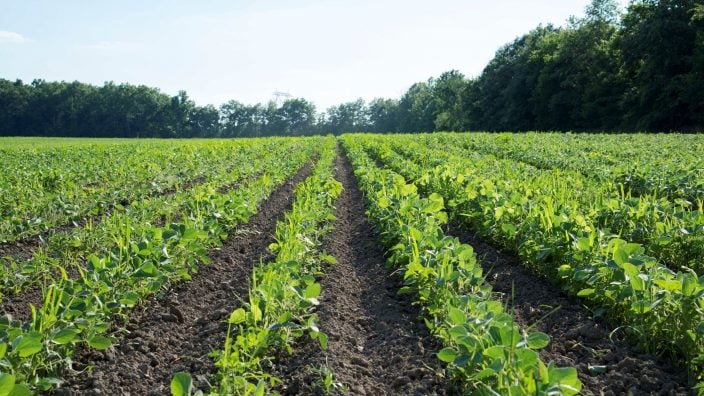Legal with Leah: The questions around data centers
Leah Curtis joins this Legal with Leah to talk about what data centers mean for local communities and how to stay engaged in the development process
Read MoreThe 3rd District Court of Appeals upholds denial of eminent domain for gas pipeline. Court also recognizes the public purpose of farmland easements.
Ohio Farm Bureau and Union County Farm Bureau have been involved in a court case, Columbia Gas of Ohio v. Bailey Family/Arno Renner Trust, with potential impacts to farmland preservation programs. A long-awaited decision in that important eminent domain case came out recently, and Ohio Farm Bureau Policy Counsel Leah Curtis breaks in all down in this Legal with Leah.
Listen to Legal with Leah, a podcast featuring Ohio Farm Bureau’s Policy Counsel Leah Curtis discussing topics impacting farmers and landowners.
Ty Higgins [00:00:00] Ohio Farm Bureau and the Union County Farm Bureau have been involved in a court case: Columbia Gas of Ohio v. the Bailey family and Arno Renner Trust. Potential impacts to farmland preservation programs here. A long awaited decision in that important eminent domain case is now out. And to talk more about that is Leah Curtis, policy counsel with Ohio Farm Bureau for this Legal with Leah.
Ty Higgins [00:00:23] A lot of our members keeping a close eye on this case. How did this case get to the point it is now?
Leah Curtis [00:00:29] So like we talk about a lot, this is an eminent domain case where utility company in this case it was Columbia Gas, was seeking to take an easement for a natural gas pipeline across farmland. As many of our members know, eminent domain in general is a big concern of of all of them, as well as of Farm Bureau. But this case had an additional issue that not only was the land involved farmland, but it was land that was subject to a farmland easement that had been donated by the family to the ag easement donation program.
Ty Higgins [00:01:00] Remind us what that farmland easement means.
Leah Curtis [00:01:04] So a farmland preservation easement, or what we kind of usually call an agricultural easement or ag easement, is essentially a restriction on your property that it will only be used for agricultural purposes. And the terms of that easement are going to have certain limitations, certain allowances. But overall, the idea is that the land cannot be developed, and it can’t be used for anything other than agricultural purpose. Those are going to typically be sold to the state or donated through either the ag easement purchase program or the ag easement donation program. And that’s essentially a legal promise on your property that the land will be used for agriculture in perpetuity.
Ty Higgins [00:01:39] Of course, what we’re talking about now is an opinion as part of an appeal. Let us know what happened before we got here.
Leah Curtis [00:01:45] So within an eminent domain case, just as a reminder, the agency or the utility, the company that’s taking the land, they have to prove to the court both that there’s a public use and that there was necessity for the taking. So at the trial court, the judge found issue with that necessity part of the equation. And essentially the utility had had not met their burden to show that necessity. On the other hand, though, the trial court also found that the ag easement did not necessarily preclude the eminent domain action. So it didn’t stop eminent domain from occurring. So from that ruling, the utility appealed based on that necessity issue and the landowners, the Bailey family, the Arno Renner Trust, also appealed on the issue of that farmland easement.
Ty Higgins [00:02:29] So what did the court say this week in regard to this case?
Leah Curtis [00:02:32] The court released a very thorough opinion and essentially found that the trial court was right to rule as it did on that necessity issue. Particularly, the court was concerned with the characterization of some of those easements as temporary when the project was before the Public Utilities Commission, which approves the project part of this. But then when it came to the court and the eminent domain side of it, those easements were presented as perpetual temporary easements. So that was a big concern that they talked about a lot, and that was consistent with other rulings that this appellate court has made in relation to other takings for this project. So that was consistent with how they ruled in several other cases as well.
Ty Higgins [00:03:12] Important to point out too, the court really honed in on that farmland easement issue in their opinion.
Leah Curtis [00:03:18] The court took a lot of care with reviewing the farmland easement question. They really looked at the program’s purpose and how the law really characterizes a farmland easement as something that serves the public and serves the public good. And so ultimately, what the court found was that the landowners, the Baileys, had shown that there was evidence of what we call a prior public use. And from a legal perspective, that’s really important because we have precedent that says eminent domain can’t be used to destroy an existing public use. Essentially, you can’t take one public use away for another public use. So the court has now sent the case back to the trial court to further review that issue and determine is the public use of the farmland preservation easement destroyed or impacted or removed by an eminent domain action for this utility use?
Ty Higgins [00:04:10] I mentioned Ohio Farm Bureau and Union County Farm Bureau had some role in this case. Can you explain how we were involved here?
Leah Curtis [00:04:17] So with Farm Bureau, we always start with our grassroots, and our local county Farm Bureau has really been involved with this situation really from the start making their concerns with this case known to their local leaders. And then at the state level, we were able to work with the landowners. And then once it got to a point where we could get involved formally with the court system, work with their attorneys, and filed an amicus brief that was also joined by the Coalition of Ohio Land Trusts. And that amicus brief really focused on the ag easement issue and how that utility line being buried under a property, it really does impact the agricultural use of the property. I mean, there’s studies that show that yields can be diminished. We highlighted that there are going to be lots of agricultural uses that really wouldn’t be available, you know, things like planting a tree crop, building a livestock barn that might be prohibited or really severely limited by the presence of this line. And so the point of our amicus brief is not only to support all these legal arguments, which we do, but also to provide some of the broader and practical and broader perspective of the impacts that this case can have on the individual landowner and also the larger agricultural community as well across Ohio. So as an amicus, we don’t always get to point directly to a quote or to a part in that opinion that comes from us. But oftentimes we can see shades of what our arguments were in our comments. And really, ultimately, our goal here is to see these good outcomes in these cases like we have here today.
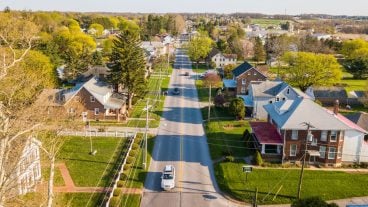
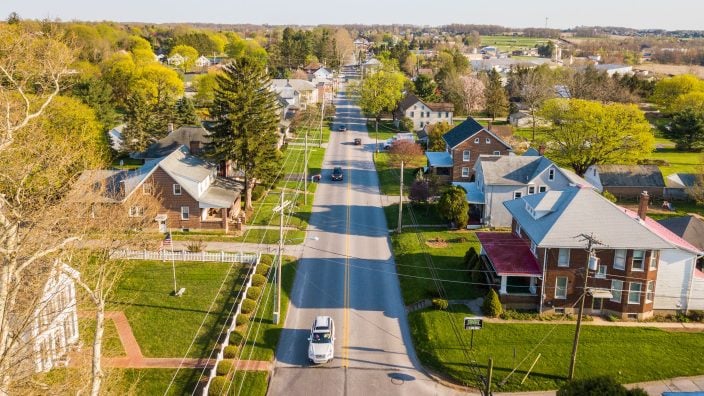
Leah Curtis joins this Legal with Leah to talk about what data centers mean for local communities and how to stay engaged in the development process
Read More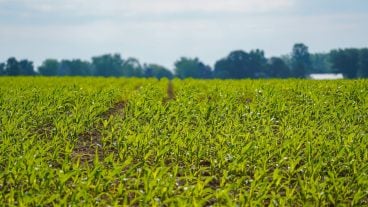
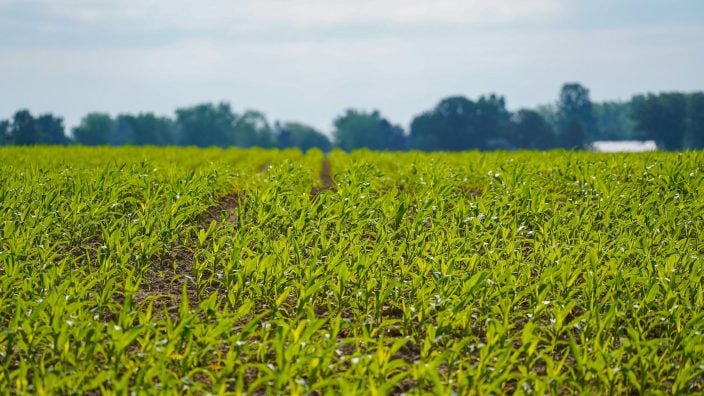
Ohio Farm Bureau advocated for a change in the law to allow family members and employees to handle pesticides while under the supervision of a licensed applicator. The rules around HB 10 are being finalized.
Read More

Four property tax reform bills were signed into Ohio law at the end of 2025. Ohio Farm Bureau Associate General Counsel Leah Curtis breaks down the bills and what the changes mean for Ohioans.
Read More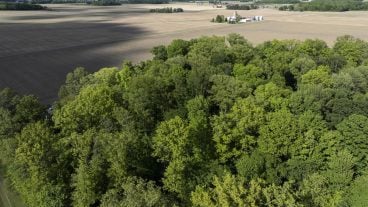

Learn what the requirements are to legally fly a drone in Ohio as well as steps the Ohio Legislature has taken in terms of security concerns.
Read More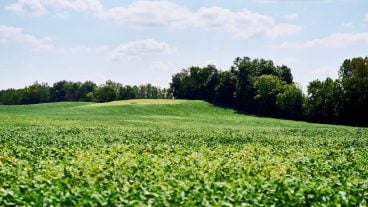
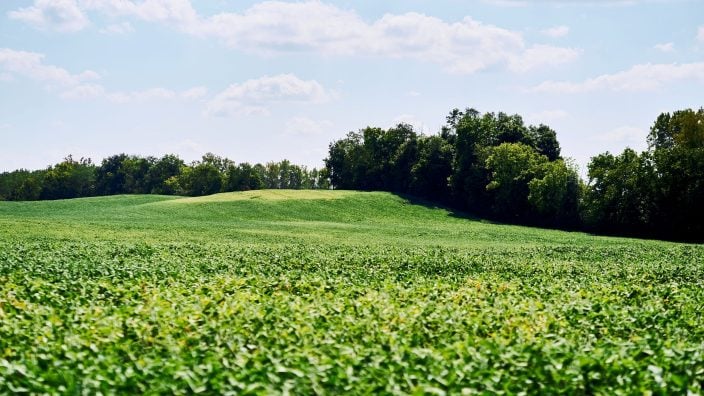
In 2025, about 21 counties are going through a reappraisal or update, and because Ohioans pay taxes one year behind, they will see new property tax bills in January 2026.
Read More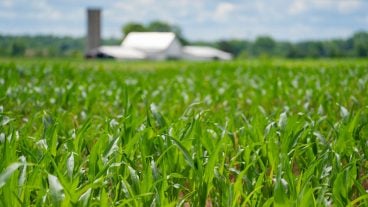
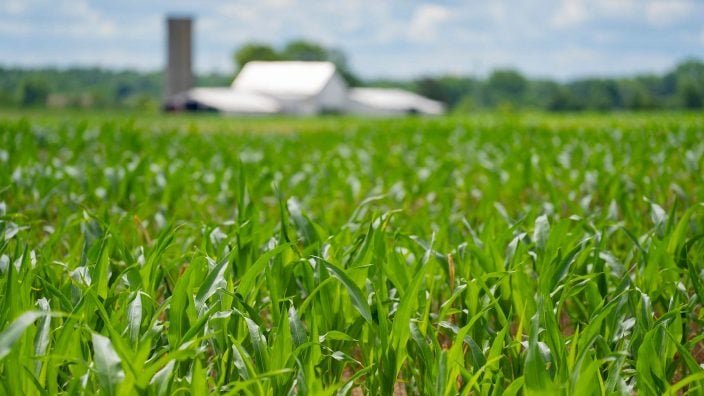
Any unlicensed handlers who use restricted use pesticides will need to have additional training. Farm Bureau will be working on legislation to give employers a choice on how to provide training.
Read More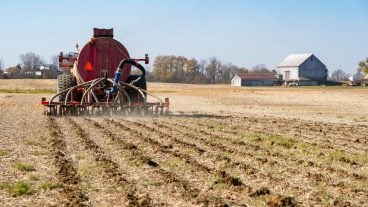
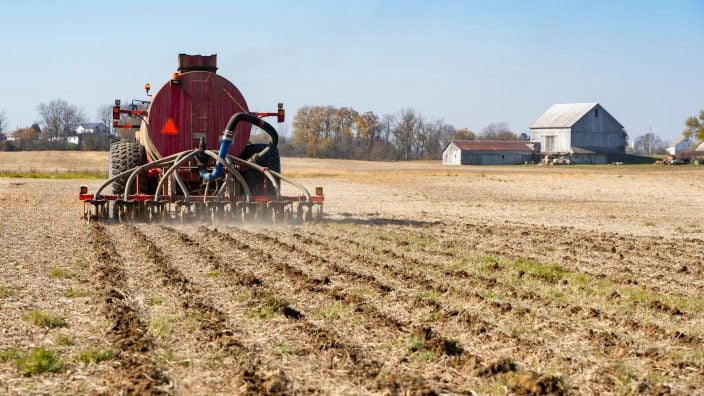
Current Agricultural Use Value is often discussed as a farmland preservation tool, but there are some other tools in the law that landowners can consider.
Read More

Update: As of Feb. 27, 2025, the Financial Crimes Enforcement Network announced no fines, penalties or enforcement action will be taken against companies based on failure to file or update BOI by March 21.
Read More

Update: As of Feb. 27, 2025, the Financial Crimes Enforcement Network announced they would not issue any fines or penalties or take enforcement action against companies based on failure to file or update beneficial ownership information reports by the March 21, 2025, deadline.
Read More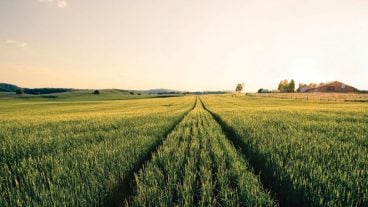

Update: As of Feb. 27, 2025, the Financial Crimes Enforcement Network announced they would not issue any fines or penalties or take enforcement action against companies based on failure to file or update beneficial ownership information reports by the March 21, 2025, deadline.
Read More